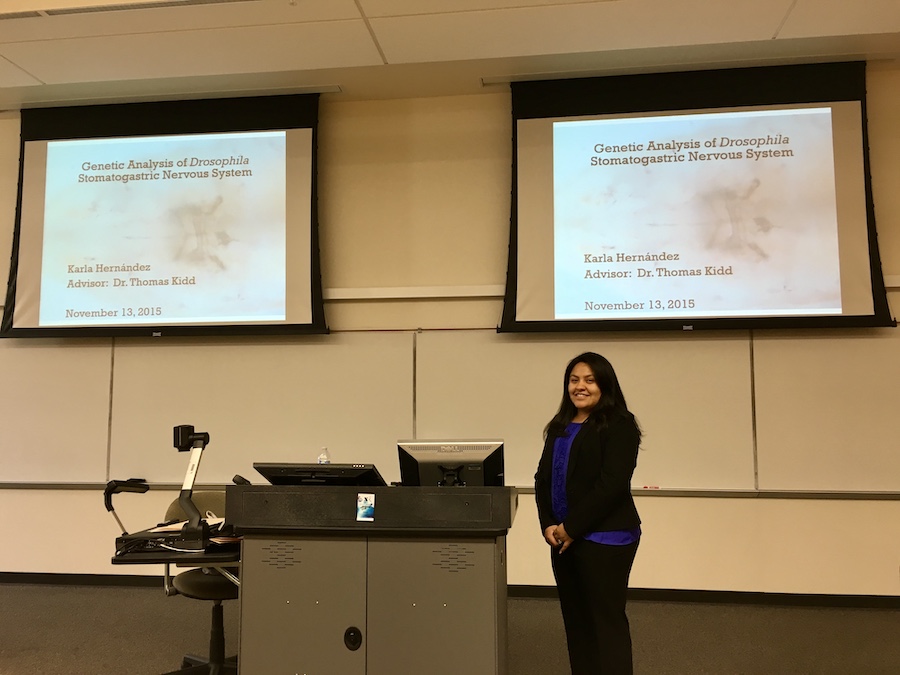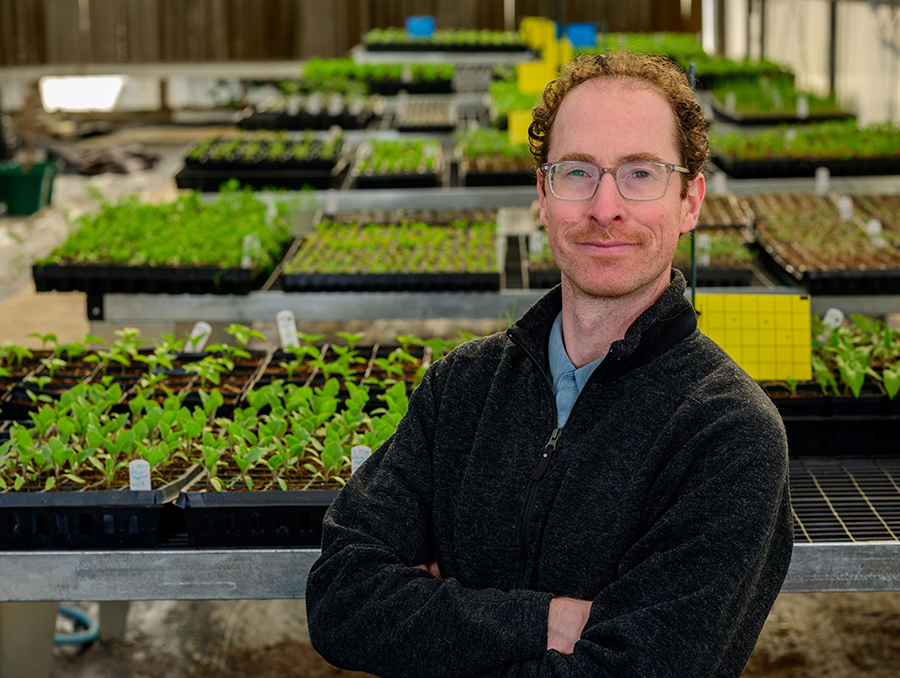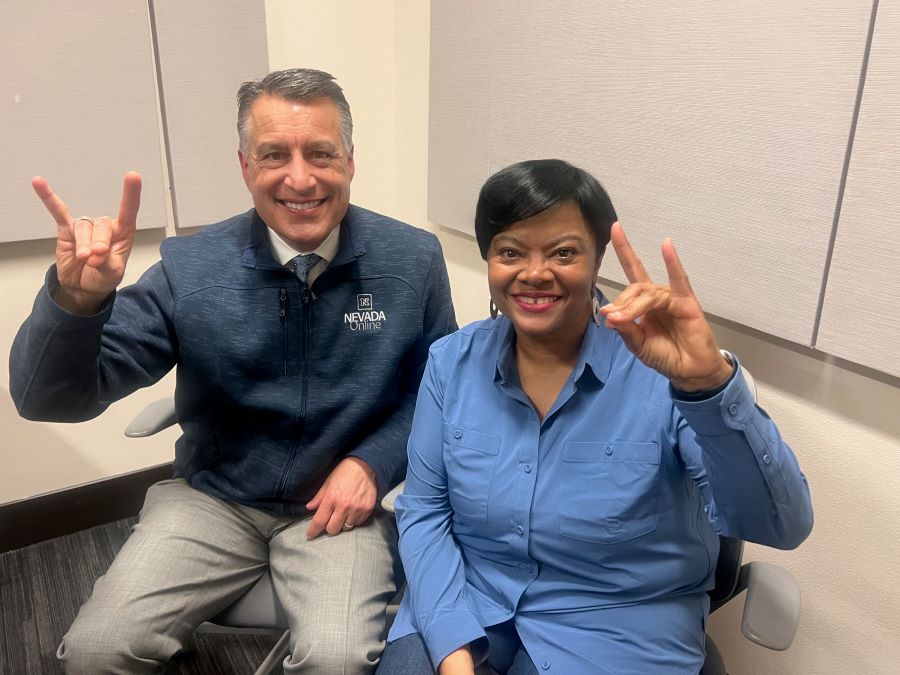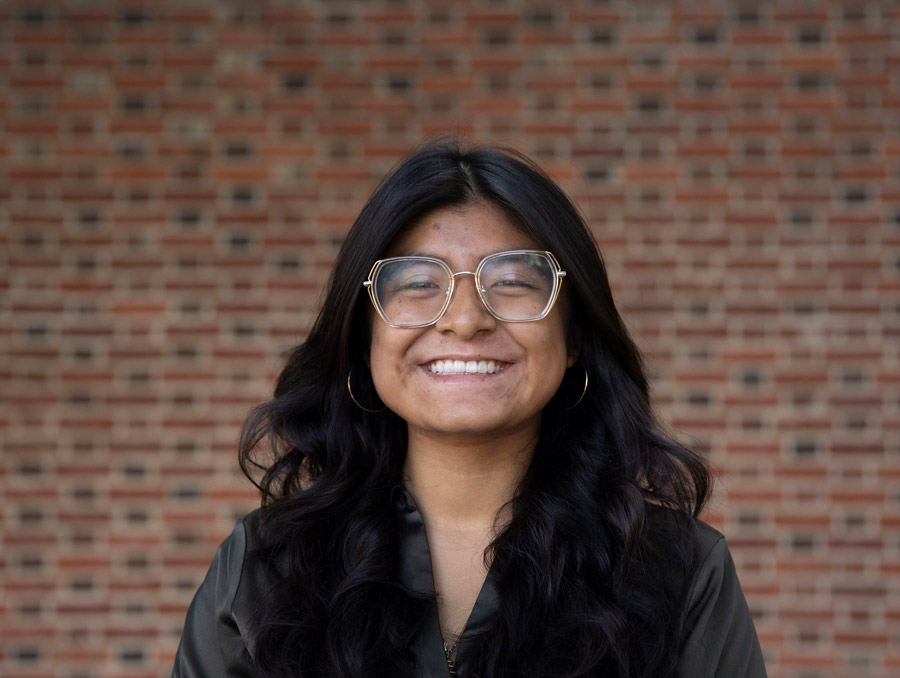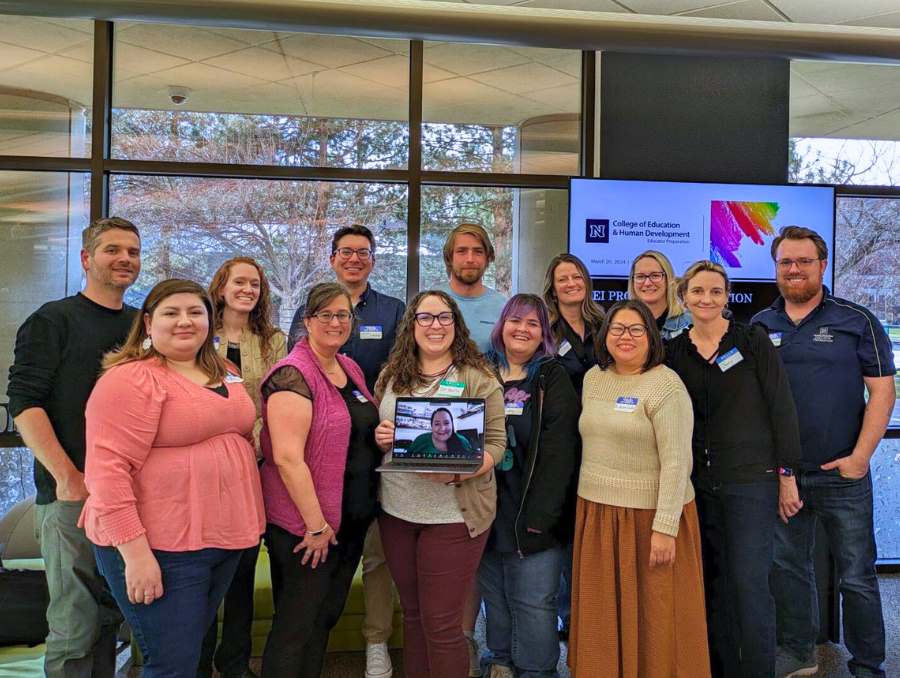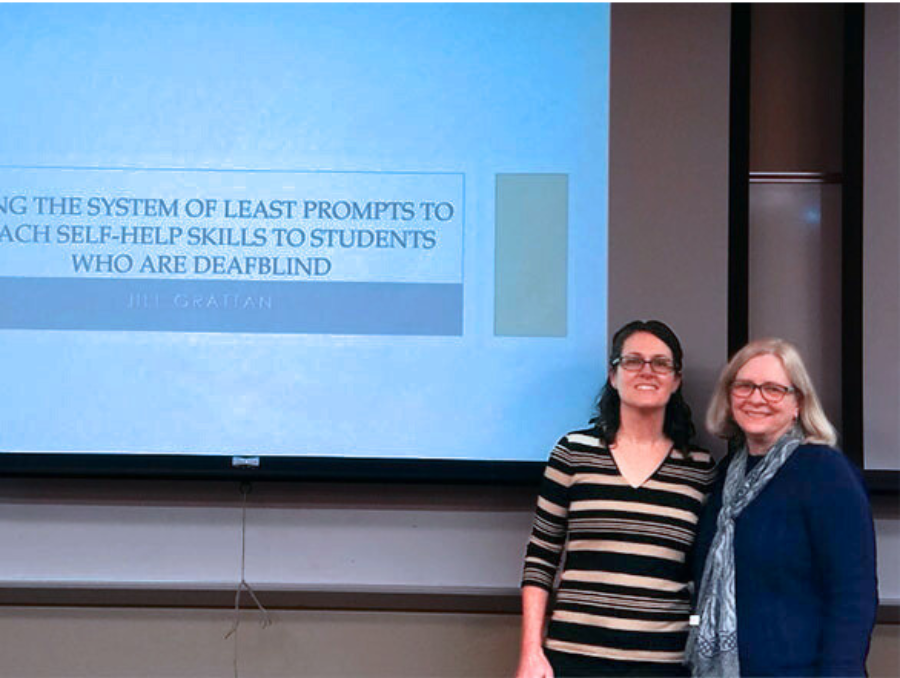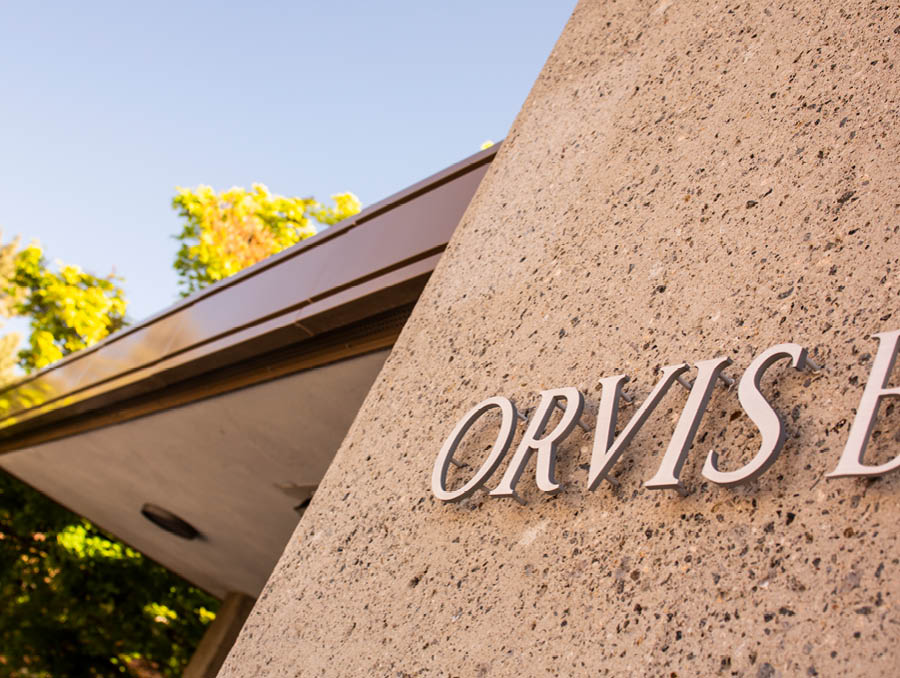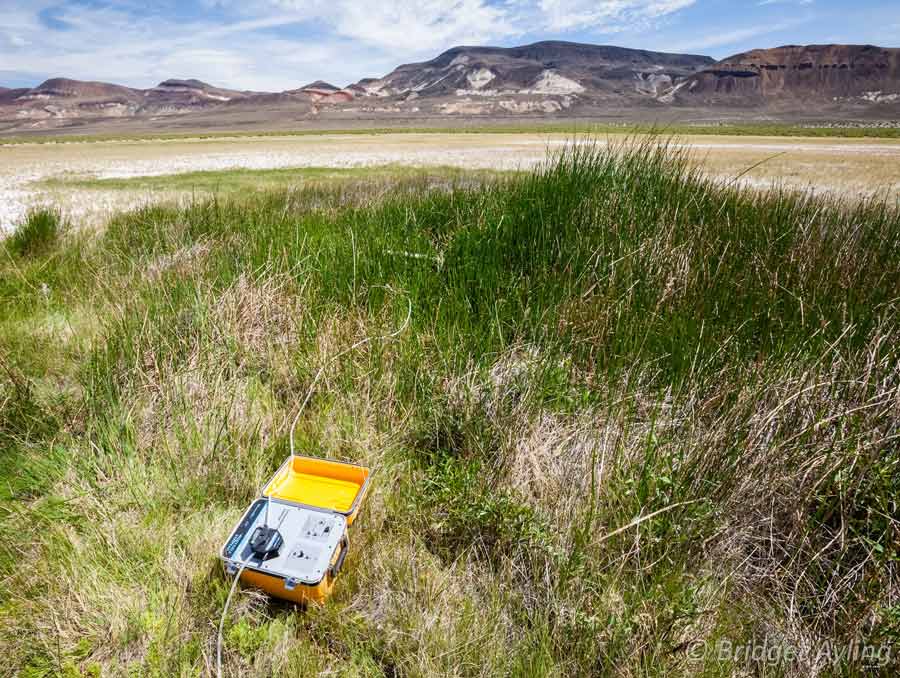One of the great things Ryan Brock gets to do as a field-based instructor in the College of Education is to pursue his dream of obtaining a doctorate. Another is the fact he feels privileged to teach introductory elementary education to eager University students who want to make a difference in the schooling of our youth. And, he still makes time to teach those youths how to bark, whistle and do the screaming bugle.
“I’ve been running a program at Jessie Beck Elementary School in Reno to teach fourth graders science, social studies, math and how to sound like an elk,” Brock said. “We had nine students compete this weekend in the Rocky Mountain Elk Foundation’s national competition.”
The competition was held in six divisions as part of the Rocky Mountain Elk Foundation’s 24th Annual Elk Camp & Hunting, Fishing and Outdoor Expo. The event was held for the third straight year at the Reno/Sparks Convention Center. More than 50 callers from 10 states competed, and this year, Carmen Hutchens, one of Brock’s students, placed fourth in the Pee Wee division.
“I had nine students show up, all very excited. They were the most excited bunch I have ever had, and they all did great.”
In the event, callers have 30 to 45 seconds to mimic cow elk sounds and then bull sounds. Professional-level competitors are required to make specific calls such as barks, whistles and screaming bugles, so most callers blow across a latex reed placed inside the mouth. Judges score each competitor and winners received prizes and cash ranging from $500 to $2,500.
It may sound odd at first, using elk as teaching aides, but Brock has been doing it for six years now, and he believes the benefits to the students are vast.
“When we started, it was just a couple of students meeting weekly during lunch for fun to learn about the different kinds of elk calls,” Brock said. “But I found out there are plenty of ways we can learn from elk and the students were really interested. For instance, we utilize geographical and mapping skills to study the animal’s historical range. We study the environment; learn about adaptation and the food sources, and the population fluctuations. We use math skills to diagram antlers, and we launch into biology learning about the elk’s four-chambered stomach as well.”
Brock, one of three field-based faculty members at the University who is from the Washoe County School District, said the majority of the kids have no clue what an elk is when they check out the club.
“My dad worked at an elk refuge in Wyoming for many years,” Brock said. “He said I should get the students involved in the calling competition and I wondered just how much they could learn about a variety of other things on the way. It’s just blossomed since then.”
Wearing a bright yellow tie with E=MC2 printed all over it, Brock’s enthusiasm is contagious. He continues to list the educational benefits for the students, who learn more, he says, because it’s so much fun.
“Some kids will come to the club and say ‘I hear you make funny sounds,’” Brock said. “From there, we can teach the science of sound with elk calls, including the vibrations and how they travel. Environmentally, they’re learning about the carrying capacity of an area, and we look at the influences of wildfires, human population and hunting, too. It’s a lot of stuff the kids just haven’t thought about before. And for most of them, performing the calls in competition is their first experience in front of a crowd, so it builds their self-esteem and confidence levels.”
As Brock has built the club, he’s utilized the kids’ excitement to attract some national sponsors who can help out with expenses, T-shirts and fees. He’s also seen more interest from other elementary school students and he’s using what he’s learned from the project to teach his classes at the University. And the College of Education is thrilled to have him.
“The field-based faculty members from WCSD are a great asset to our teacher education programs, William Sparkman, Dean of the COE said. “They are among our best instructors and bring their experiences as master teachers to our teacher candidates. It’s great because the field-based faculty members provide a real bridge between theory and practice for our students in the College.”
There are currently two other field-based instructors from Washoe County currently in the program. Whitney Foehl specializes in secondary education and Peggy Polczinski in special education. Each studies and teaches for three years at the University.
So while a “warning bark” or “cow-to-cow calling” may not be the most universally impressive skills these competitors could some day add to a resume, Brock believes there is a whole lot more to this particular learning experience than attracting a screaming bull.
“It gets them excited about nature and the environment and a hundred other topics,” Brock said. “And I’m grateful to the University and WCSD for giving us the opportunities to share what we’re learning as educators.”
Next year, the elk-calling championships will move to Fort Worth, Texas. Will the club get a chance to go?
“We could probably learn a lot on a field trip,” Brock said. “We’ll see.”




